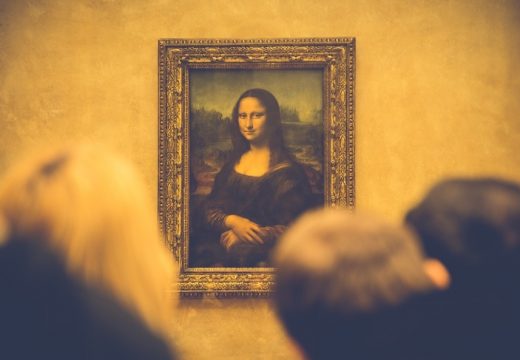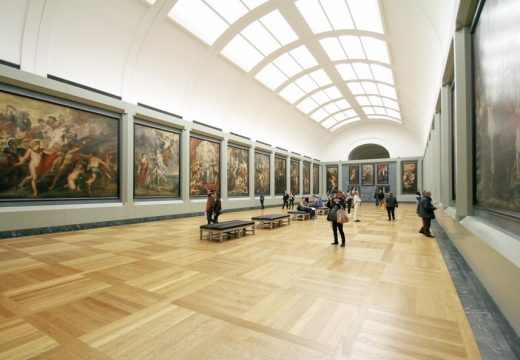Alice tutors English and Latin with MyTutor as well as working in the art world, she shares her response to the news that History of Art will be coming off the A-Level curriculum.
According to reports this week, History of Art, apparently, is too soft a subject to merit teaching. 2018 will be the last year in which the subject will run at A-Level. The move is said to follow plans to remove ‘soft’ subjects from the curriculum. A further consideration was the lack of widespread teaching of the subject; so the solution settled upon is to drop it altogether.
AQA is currently the only exam board offering the subject. Despite supporting the validity of History of Art, the exam board itself admitted that the price of running the exam (considerably more than more popular subjects with fewer specialist options) has made it somewhat unfeasible to continue.
Unsurprisingly, the decision has provoked outcry across the country. Students and teachers alike fear that the loss of the subject will damage not just specialist knowledge, but the appreciation of the arts and culture at large.


Next year, for example, Hull will celebrate its status as UK’s City of Culture by hosting a series of artistic events. The plan is to stage ‘a year of transformative art and culture for 2017’. The committee in charge of the programme have emphasised the centrality of young people, who will be ‘at the heart’ of the events as ‘it is this group who will inherit the longer-term benefits as a result of [the] focus around Education and Skills’.
Education and Art are inseparable. The study of art encourages a multi-disciplinary approach: History, Philosophy, Religious Studies are all brought to bear on artworks. Whereas other subjects in the recent cull were dropped because of their superfluity, History of Art cannot be replaced in the same way. Creative Writing is an essential part of English A-level. Performance Studies is likewise incredibly similar to Drama and Theatre. History of Art, on the other hand, is unique in teaching history though the material works that shaped and were shaped by it. Art History is not simply about preserving a stock of knowledge, or a certain idea of heritage. It is about opening up ideas, creating dialogue and sharing visions.
And after A-Levels?
Students will still be able to study Art History at university; but the course won’t have grounding in prior experience of the subject. Students will be expected to pick up the subject from scratch at university. Initially, the subject was going to be redesigned rather than scrapped. To me, this seems like a better option. History of Art is not just valid but valuable: it opens up new ways of seeing, and invites a multidisciplinary lens of understanding. In order to appreciate a given artwork, students must be aware of the manifold influences and pressures surrounding a composition.


Furthermore, if Art History is no longer deemed a credible subject at school, it is likely that fewer students will apply for the subject at university. This could have detrimental consequences for the arts sector more widely. The arts sector is one of the biggest industries in the UK; to scrap History of Art potentially threatens the buoyancy of this.
History of Art invites us to think about inheritance – past, present and future. As the Hull UK City of Culture committee said, students and youth are crucial in supporting the strength and success of the arts sector: ‘it is this group who will inherit the longer-term benefits as a result of [the] focus around Education and Skills’.
So if students cannot take an exam in History of Art, it is nevertheless crucial to encourage an awareness of art. Art offers both objective and subjective ways of understanding a culture. It is, moreover, an exciting way of engaging with the study of history.
Previously inaccessible artworks are increasingly available to view online. New web-resources and digitized editions make it easier to illuminate History of Art in its mainstream as well as niche aspects. Students are able to discover more artworks, and more information about those artworks, at just the click of a mouse. Indeed, such innovations seem like a reason to keep – or even expand – the subject.


Yet if the subject is to be dropped at A-Level, let us make extra efforts to consider art when studying other subjects. So much of history depends upon, and has been depicted in art. To neglect art is to neglect a crucial aspect of culture.
To open the case into a wider sphere, here are a few insightful facts to consider:
- The Centre for Economic and Business Research estimates that the arts and culture sector contributes £7.7bn to the UK economy
- 57% of people surveyed by the Nation Brands Index (2009) singled out ‘history and culture’ as a major influence on their decision to visit Britain
- Liverpool’s Capital of Culture year generated £753.8m for the local economy in 2008
To develop your own understanding, and discover new ways of seeing, check out these resources:
- E. H. Gombrich, The Story of Art
- Cynthia Freeland, Art Theory: A Very Short Introduction
- http://artuk.org/
- https://www.google.com/culturalinstitute/beta/
Written by Alice Theobald, who tutors Latin and English with MyTutor
Postscript: MyTutor is delighted to hear that History of Art A-level has been saved, and will have a ‘global specification’ – a move celebrated by students, teachers and Turner Prize winners like Anish Kapoor!




